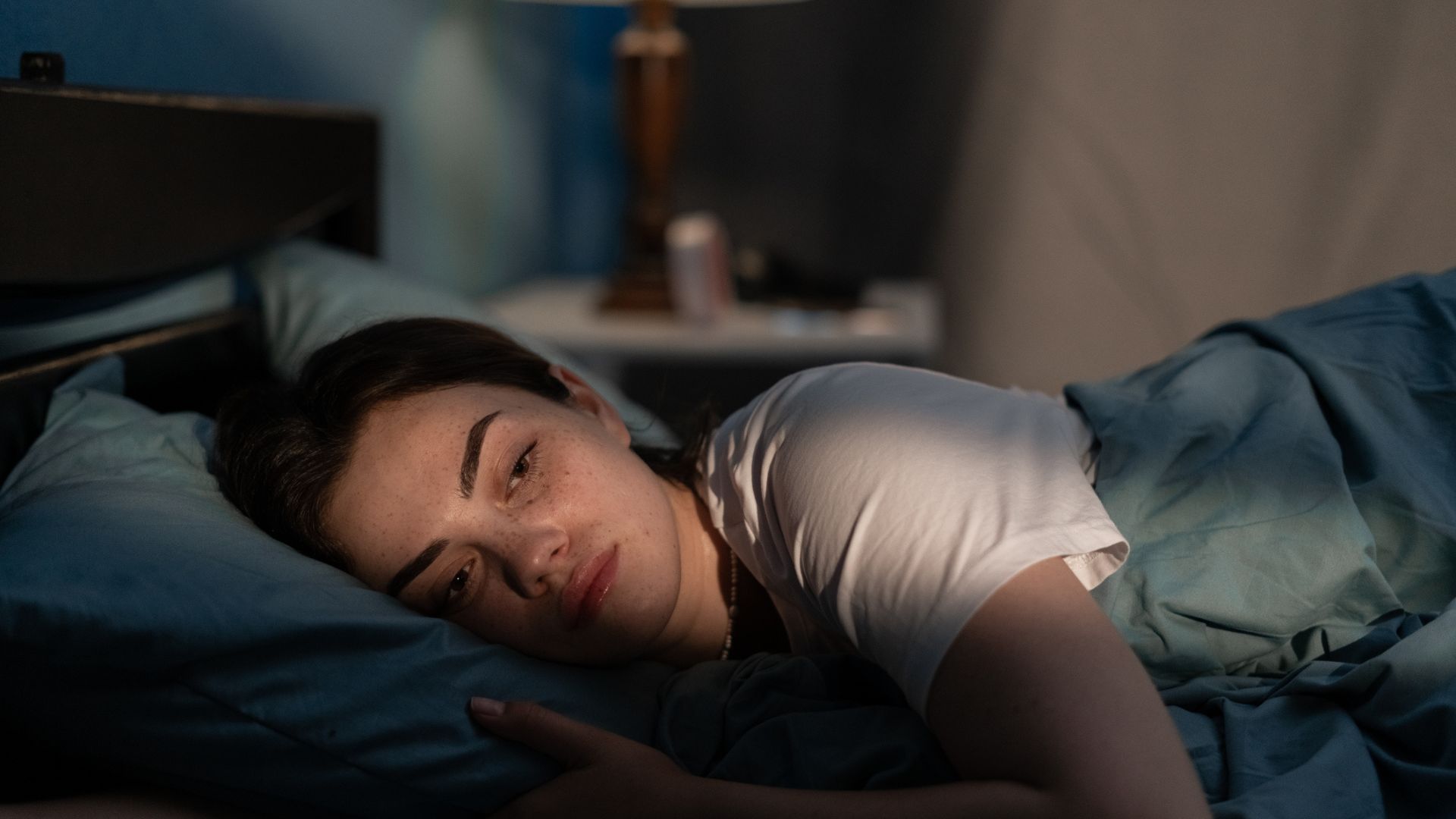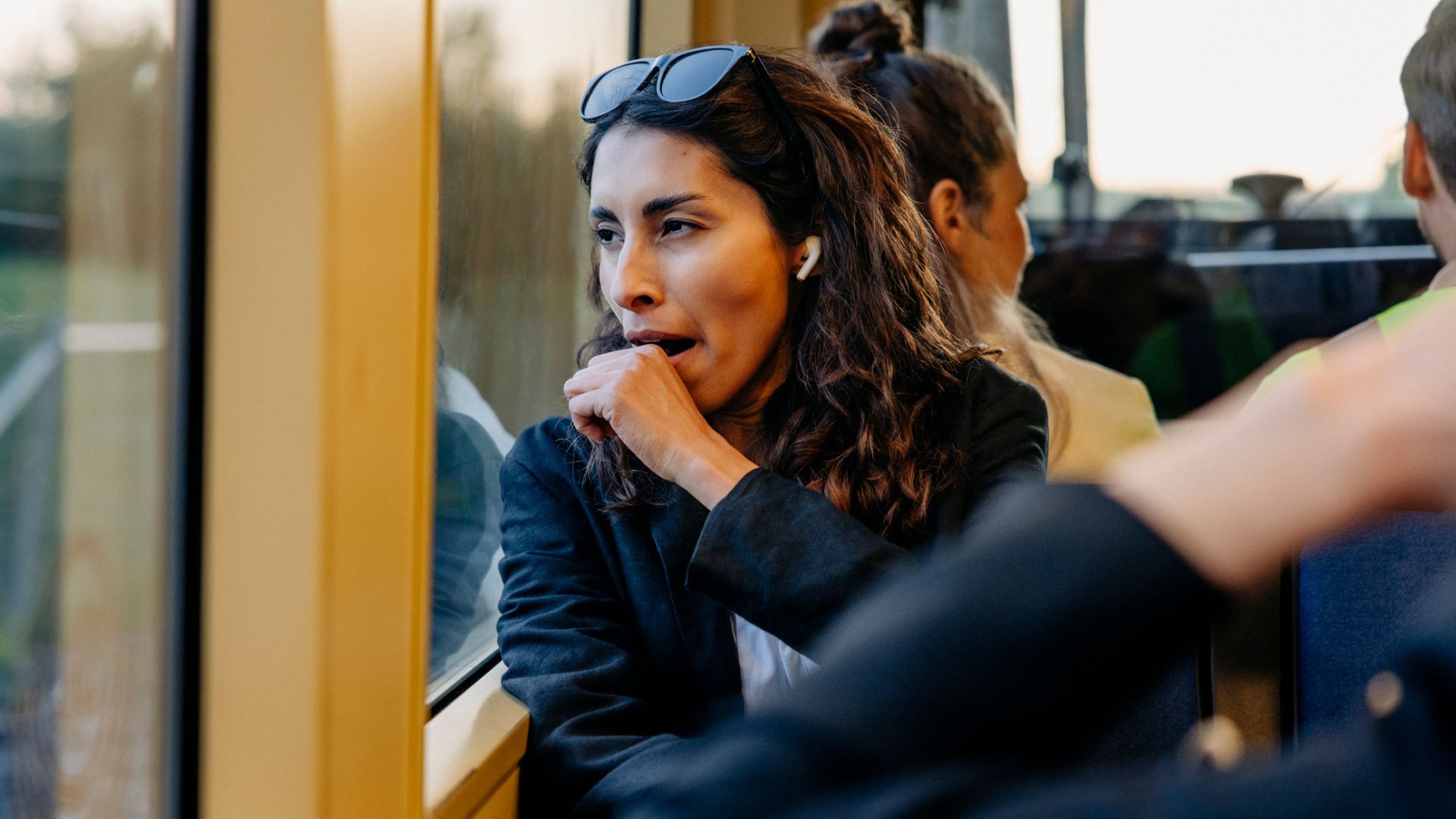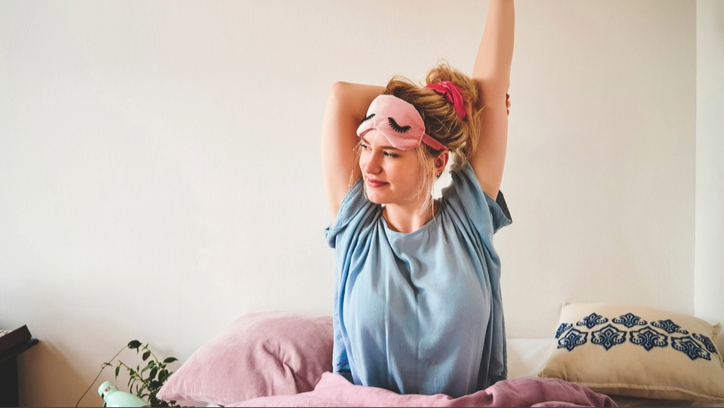Too tired to rest? Doctor explains how overtiredness can stop you from sleeping
Overtiredness is becoming more common — here’s how you beat it

'Too exhausted to stay awake but too active to sleep' — Sounds familiar? You’re not alone. According to the 2020 Sleep in America Poll, around 44% of over 1000 US adults reported that they are tired for 2 to 4 days in a week on average, which ends up impacting their daily activities, mood, productivity and mental acuity.
Overtiredness is a paradoxical condition where you're exhausted during the day but struggle to sleep at night. Even if you're lying on the best mattresses for your body type surrounded by cozy bedding, if your brain is in a state of hyperawareness it's going to be near impossible to drift off.
To better understand overtiredness and its causes, we reached out to Dr Leah Kaylor, clinical psychologist and Dr Hana Patel, NHS doctor and resident sleep expert at Time4sleep for their insights. We have also included their tips and advice on preventing overtiredness, so you can improve the quality of your life as well as your sleep.
What does ‘being overtired’ mean?
Dr Kaylor describes overtiredness in the words of one of her clients: "My body is begging to sleep, but my mind won't shut off.” It's basically a state of extreme exhaustion when instead of feeling sleepy and naturally dozing off, your brain experiences a “second wind” of energy due to the overproduction of cortisol and adrenaline (the stress hormones).
Our fast-paced lifestyle and multiple commitments has made us evolve into a restless society. This means that overtiredness, which is generally regarded as something that affects children, is becoming more common among adults. “We use the term overtired often for babies, but it is an epidemic in adults - especially due to the modern lifestyle, where we prioritize productivity over rest,” says Dr Kaylor.
While there are no specific symptoms for this condition, it may manifest differently in people depending on their age, lifestyle, health and body type. Some common tell-tale signs include headaches, irritability, feeling tired all the time, memory loss and coordination issues.

How being overtired makes sleeping difficult
We might think that being overtired is the best way to fall asleep but that’s not the case. Overtiredness sends your brain into an active mode which can lead to sleep deprivation if not addressed in time. This mainly happens when we continuously delay or ignore the natural urge to sleep, also termed sleep pressure.
Get instant access to breaking news, the hottest reviews, great deals and helpful tips.
"The sensation of sleep pressure is caused by the build-up of chemicals (called adenosines) in the brain. These are proteins that are removed from our brains while we sleep, and build up again while we are awake," says Dr Patel.
For adults, this process takes about 14-16 hours while in children, sleep pressure builds up more quickly. This is why babies often fall asleep after being awake for an hour or two. Sleep pressure, once ignored, takes time to return which can result in a disturbance to your circadian rhythm— the body's sleep and wake cycle.
Here are some ways you may be blocking or resisting sleep pressure:
- Intense stress or anxiety
- Erratic sleep schedules due to shift work or jet lag
- Relying excessively on caffeine or energy drinks throughout the day (or even certain medications which continue to exert its effect long after taking them)
- Engaging in any particular activity (watching an interesting show or intense physical training) before bedtime overstimulates your brain due to dopamine release
- Underlying sleep disorders like sleep apnea, insomnia or restless leg syndrome
- Lack of proper sleep hygiene
How to prevent feeling overtired
Overtiredness can be prevented by paying close attention to your sleep hygiene and forming positive habits around bedtime.
1. Create a nighttime routine
It is practically impossible to hit the sack and sleep instantly after finishing work or an intense physical training session. The key is to prepare your mind and body for bedtime. "Two hours before bed, begin to shift gears mentally to wind down and leave the stress of the day behind. This signals the body to relax and will promote restful sleep," says Dr Kaylor.
You can create a nighttime routine to follow in these two hours which can involve taking a warm shower (which helps cool the body down for sleep), listening to gentle music, practicing meditation or relaxation methods like sleep visualization, cognitive shuffling or even journaling.
2. Stick to a consistent sleep schedule

This is perhaps the most important step for a good night's sleep. Going to bed and waking up at the same time every day (even on weekends) regulates your circadian rhythm — which is integral for sleep health. If you have had a few late nights, don't worry, there are ways to fix to your sleep schedule.
The easiest method is to shift your sleep by 20 minutes each day until you reach your desired sleep time. Also make sure to limit your caffeine intake while adjusting your sleep schedule (and even otherwise), as it has a half-life of approximately five hours. This means that even after five hours of consuming it, half of the caffeine remains in your system.
"Caffeine’s stimulatory effects can significantly delay your ability to fall asleep. By blocking adenosine, caffeine keeps your brain in a state of heightened alertness, even when your body is signaling that it’s time to rest. This can make it difficult to transition into sleep, particularly if caffeine is consumed in the hours leading up to bedtime," says Dr Kaylor.
3. Create a calm and comfortable environment
Having a conducive sleep environment is integral for an uninterrupted night's rest. Keep away external distractions like ambient light and noise using earplugs, blackout curtains or a white noise machine. Stick to a 'no screen rule' during your winddown time to minimize exposure to blue light. "Blue light shares the same wavelength as sunlight and is particularly effective at suppressing melatonin production—the essential hormone that helps us fall asleep," says Dr Kaylor.
If you're someone who struggles with anxiety, studies indicate that investing in a weighted blanket, can offer a soothing and relaxing sensation, mimicking a warm hug, which can help you to slowly drift off into deep sleep.

Becky is a Sleep Staff Writer at Tom’s Guide covering all things sleep-related including product reviews, research studies, news and explainers. She works on specialist bedding content and is responsible for buyer’s guides like the best pillows for all sleepers and best mattress protectors focusing on popular brands such as Tempur-Pedic, Avocado, Coop Home Goods and more. Becky is a PPA accredited journalist who is keen to explore the intricacies of sleep, its effects on skincare, mental wellbeing and work performance. While not thinking of sleep, she can be seen reading in cosy bookshops or learning about global food culture.
 Club Benefits
Club Benefits





